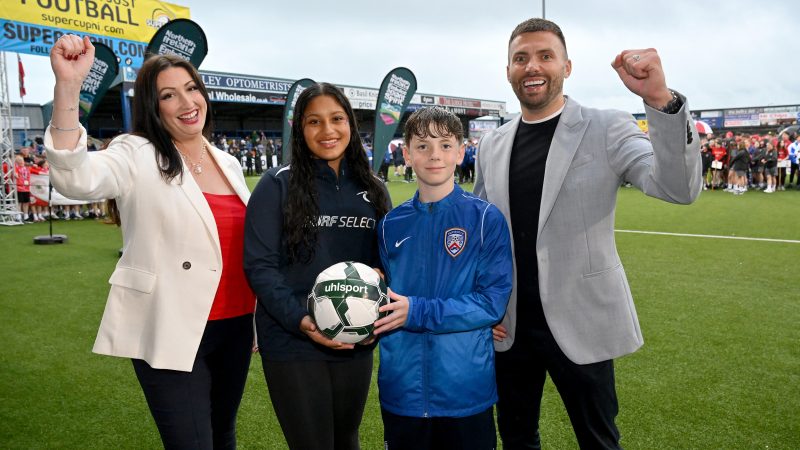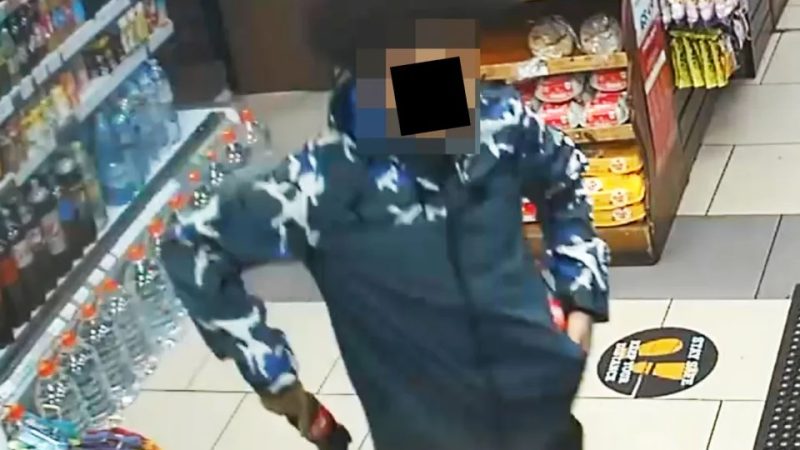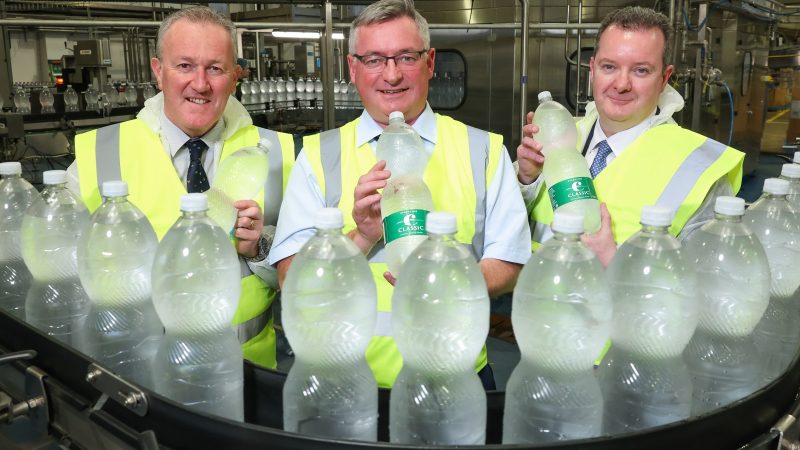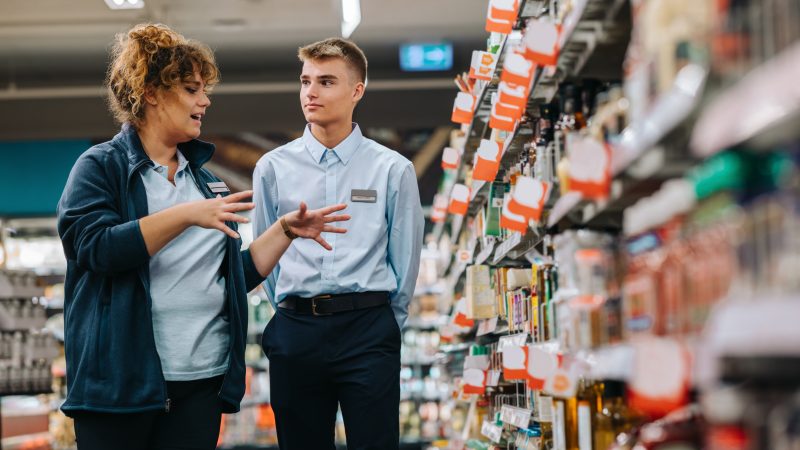Northern Ireland independent retailers are ‘exceptional’

Founder of the Independent Retailer Owners Forum (IROF), Scott Annan is a retail food expert, serving as an independent sounding board for retailers and has hosted retailer visits around the world. Speaking to NR, he reveals why Northern Ireland retailers are world-class.
Northern Ireland has always been very competitive in retail standards, some of the best in the world in terms of store operating standards, store cleanliness and what is on offer, according to Scott Annan.
Scott established IROF in 2017, as well as other retail forums, representing almost 90% of the market place and is well placed to offer insight and knowledge to independent retailers seeking advice and wanting to enhance connections.
IROF now has 24 retailer members from across Ireland and GB, with Newry retailer Terry Mulkerns one of the group’s foundation members. In addition to Terry, renowned County Down retailers Tom and Ann McAvoy and Derry~Londonderry retailers John and Donna Moran are members of IROF, as well as seven members from the Republic of Ireland.
A closed group, members pay an annual subscription, with peer-to-peer learning at its core.
“Because we’re independents, we’re not competing with each other. We challenge each other and my job as the non-retailer is to challenge them, question why they are doing one thing over another,” explains Scott.
“It is also about insight and knowledge – and part of this is travelling. We were in Chicago this year and Seoul in Tokyo last year and we also travel around the UK, Ireland, Germany and the Netherlands. There is a lot of knowledge and insight sharing.”

At the core of it all however, it is about the financial betterment of the members.
“We are businesspeople and if we can be better, we can make more payment, that can come from improving our people, improving our technology, building stores better. We just share,” said Scott.
Scott is also founder of the Retailer Leaders Forum, a group for multiple stores including Tesco, Morrisons M&S, Co-op and headquarters including Spar UK. On a couple of occasions each year the two forums hold joint events.
“I was always a little anxious about that in the beginning, but actually they love it,” said Scott. “My job is simply, like in an orchestra, I am the conductor, although I spend one-on-one time with them as well.”
Visiting Northern Ireland approximately four times a year, Scott has come to know the region well, and has gained a unique insight into the day-to-day running of independent retailers here, describing the landscape here as fundamentally different to the rest of the UK.
“It’s something I’ve felt from my very first time visiting both parts of Ireland, the percentage sales from proprietary and fresh retail food service are by far much much higher in Northern Ireland and RoI than the rest of the UK,” he said.
“You also have a slightly unique situation with Spar, Henderson’s being the market leader, very dominant in the north. This has all led to a lot more big stores. So, as well as having the company-owned stores, there are really big strong independents like Terry Mulkerns, Hughes in Camlough and Creightons in Belfast, that’s really a landscape you don’t see widely in the balance of the UK.
‘Northern Ireland, alongside RoI and Germany, in my opinion are world-class in fresh food for today. You are excellent at sourcing, using and marketing local dairy, meats and produce’
“I tend to look at this as an Irish thing, it’s a much more competitive market. It’s a big green island with the population of Greater Manchester, so you have had to do things differently as grocers have developed. It tends to be more international in its outlook than parts of the UK. It’s like London, in that sense, if you don’t move away from core grocery, you really don’t have a business.
“Northern Ireland, alongside RoI and Germany, in my opinion are world-class in fresh food for today. I don’t just call it food to go, because a lot of it is meals for dinnertime etc. You are also excellent at sourcing, using and marketing local dairy, meats and produce.
“Obviously, the green island is very very strong in agricultural products, your geographies are not that big, but you are really good at using local and it actually means local. They are the two things that Northern Ireland do exceptionally well.”
At the recent Retail NI Supplier Showcase event, new chair of the organisation and Retail Sales Director at Musgrave NI, Paddy Murney told those present that the discounters are now the biggest threat to independent retailers in NI. However, Scott said there is a more positive way to look at their growth.
“I don’t see them as a threat, to me they’re a stimulus for improvement. If we look at what they’ve done in RoI, the German stores have a 25% market share but they are constantly pushing Dunnes, Musgrave, BWG to innovate. My view is they are a stimulator for people who are innovators and it leaves an opportunity with their limited ranges for other stores and their food to go/fresh food offerings.

“If we try to compete on core grocery, this is where we will fail, and maybe this is what Paddy was referring to. We are not going to be successful unless, like Terry Mulkerns for example, his core grocery section has lots of labels price matching against Tesco, who are in turn price matching against Aldi. But Terry can do that because over 50% of his sales are from items he makes himself. He has the deli counter, the made to order meals and his restaurant, so the margins on everything that he makes then allows him to compete.
“But if anyone in old school independent retail says they are just going to focus on core grocery, then Paddy is correct, they are a threat. My view is the retailer is a threat to themselves, because if you are not willing to innovate and offer things that are different from those discount stores, then you won’t survive.”
Consumers are also very brand-savvy and brand-loyal, something Scott added was very important pre-2020, however, the subsequent years altered the approach of shoppers.
“Obviously, you have local bread brands or bacon brands that are different in towns and villages, so they’re very important. But what 2020-2021 did was totally change the landscape. What happened was bigger grocery stores trained us to think that actually what they put on their shelves (non-named brands) are pretty good. You may not have heard of it, but we’re not going to sell you rubbish.
“Also, what our German friends are really good at is putting Irish flags on their produce, fruit and veg, and milk, and let’s not forget that Aldi is an Irish retailer.
“Additionally, because of the price of things now, not everybody has the ability to not look at the price.”
‘My view is the retailer is a threat to themselves, because if you are not willing to innovate and offer things that are different from discount stores, then you won’t survive’
The cost-of-living crisis brought a sharp focus for consumers on what they purchase, forcing many to swap to own-label and discounted brands. While there has been some relief recently, with a further ease in grocery price inflation, shoppers – and retailers – are still feeling the pressure.
With businesses facing increases in National Minimum Wage and National Living Wage bills, having come through record highs in energy costs and ingredients costs, many retailers are dealing with their own financial burdens.
“As with all things, there will be an end, but the retailers I’ve spoken to don’t see it to be fair. The opinion of retailers in IROF is that they don’t see an end in sight because of the ineptness of NI politicians. Retailers and businesspeople do not see NI politicians as being business friendly, very brutal but true.
“I do know of businesses in both NI and Scotland that are actually relocating to Dubai because of the ineptness and the constant increase in costs and taxes and charges,” added Scott.
“If you have got other businesses who say they are done and they leave, you’ve then got the issue that their employment, taxation and everything that they bring has left, which then puts on more pressure. Local governments then need to raise the money.
“On the positive side, you’ve got the entry of the Morrisons supply chain in Northern Ireland. They started in 2018 with Tom McAvoy. What they have done, for qualifying retailers like Tom, is significantly reduced the cost of goods, made big improvements in quality, huge improvement in gross profit margins, which then allows them to cover the energy costs, cover paying people more and so on.

“It’s either how much are you buying your goods for or your mix of fresh food and proprietary that you’re selling that allow you to do these things. They are getting around the political ineptness and unfriendliness by being smarter traders.
“I would anticipate more Nisa-supplied retailers in NI having a look at the Morrisons supply chain. I think that would be something I would see more of, as it allows them to have up to 12,000 Morrisons proprietary products in food, pet food, flowers/plants, dog food, all this which they don’t have access to through a Nisa supply chain.
“Part of that is geographic and part of it is what is the Co-op’s strategy for the Nisa supply chain. Over 50% of what NI retailers sell doesn’t actually have anything to do with that supply chain. NI has fantastic sources for all of these components of food service. So that is kind of alien if one looks at what Nisa retailers are doing in GB.
“Tom McAvoy wants to overcome all those bureaucratic rules, and I would expect more of that. Retailers need to be more competitive and this is a way of doing that.”
Working with so many retailers across Northern Ireland, Scott has nothing but praise for their efforts and achievements.
“I am a colossal fan of what Tom and Ann McAvoy do. I have taken, as well as the retail groups, people from Japan, Germany, the USA to see them. I’m a big fan of what John and Donna Moran do and Terry Mulkerns of course. Hughes in Camlough and Creightons too, they are all outstanding, and there are probably scores more that I have never visited.
“My view is all of Ireland is brilliant and NI just goes one step further, for me NI is exceptional.”

Retail is always looking ahead and moving forward, and advances in technology are enabling the industry to introduce benefits to their businesses, but Scott warned it is important not to get carried away amidst the noise of technology.
“If one actually looks, there is only one piece of technology that retailers should invest in and that is headsets. All the IROF retailers have them.
“Then, ESLs is the next to invest in. They do so many things, they give you data, reduce your wastage, reduce your mark downs, reduce your labour costs in terms of routine tasks, you can do dynamic pricing.
“Return on investment is less than one year. People seem to think these things are horrendously expensive, but they’re not when you look at everything they do.
“There are lots of other things that are not consumer facing – tech and systems one can use on supply chain, automatic ordering, I would be doing lots of that.”
Scott’s final piece of advice centres on the key areas of focus for Northern Ireland retailers.
“Fresh food, and I would extend that into local. Local proprietary, artisan, all those wonderful things that NI has in abundance. Really focus on that and make it as proprietary as possible so people can’t buy it elsewhere.
“Next is real customer service and operating standards – you are damn good at that, probably the best. But it’s very easy to let that slip. It takes time and it takes money to always deliver.
“Finally use real-time data insight. Real-time data to make improvements, changes to the store, the operation of the store, ordering etc on real-time basis.
“Keep those operating standards – go for excellent!”
TO READ THE FULL SCOTT ANNAN INTERVIEW IN THE APRIL ISSUE OF NEIGHBOURHOOD RETAILER, CLICK HERE







